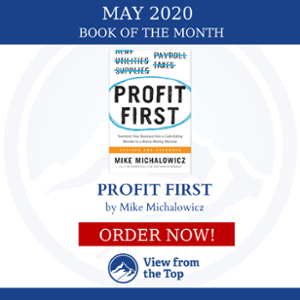
I read a statistic in Tim Elmore’s book, Generation Z Unfiltered, that blew my mind.
Citing a story in the Wall Street Journal, there’s a surge in the United States and Canada of affluent parents building private youth sports facilities for their children on their own lands.
The story went on to say that parents are doing this because they believe their elementary-age children have the potential to become collegiate or professional athletes. They feel obligated to do everything they can to help them get there.
The cost figures listed in this story totaled $3.6 billion spent on youth sports facilities in 2017, of which $320 million went to gyms, rinks and courts at personal residences.
With grandchildren playing little league, and some of them exhibiting significant talent, I partly relate to this. But as a Christian life coach, this also gets me wound tighter than a three-day clock thinking about how some of these kids will grow up thinking about themselves.
Before We Scoff
If you think I’m only picking on extreme cases like affluent sports families, think again. There are families out there earning very average incomes who have their kids enrolled in three to five different activities per week.
They flood these kids’ lives with busy-ness from a tender age, and we’re a little uncertain as to why that’s wrong.
Well, let me remind you that although access to information, content and activities is at an all-time high, little kids are even more susceptible to the “idea fairy” than you are as an entrepreneur.
Seriously, think about this now … have you ever had a difficult day building your business because of a hundred different distractions?
Have you ever identified your top three goals for your business and went to work excitedly - only to end up burning your whole day on trivia?
I’ve been a small business coach for a long time. Trust me, it’s par for the course.
More Distractions Than You Can Shake a Stick At
If adult entrepreneurs can’t stay focused for more than ten minutes, what makes you think your eight-year old daughter or twelve-year old son is going to do much better?
Elmore goes on to point out in his book that the access kids have to all these things creates exposure, which cultivates their appetite, which creates assumptions and addictions.
Can you blame kids for their anxiety epidemic these days? They’re flooded with images and content depicting one extravagant lifestyle after the next, and then shocked to discover that none of it is available to them.
So they turn to bad, cheap substitutes like alcohol, premarital sex, drugs or pornography.
What does it say about adults today, when so many of them succumb to the pressure to have their kids in all these activities to get a passing grade on their “parent report card”?
It tells me the enemy has fooled us. Big time. As usual, he’s using our pride against us.
Narrow is the Gate
Back in the 1980s, the founders of Unix believed in creating “Programs that do one thing and do it well.”
It was a way to simplify workloads for engineers and programmers to create and improve without splintering or absorbing side projects.
We teach a parallel way of thinking in the Iron Sharpens Iron Mastermind - “go an inch wide, and a mile deep.” It’s a way of encouraging entrepreneurs to dig deep on their client avatar.
We all know physical fitness and personal development are great for kids. I’m not trying to get you to make them sit at home for years and never go anywhere.
I do think it’s worth a look at your life, however, to at least evaluate whether you’ve fallen prey to this. Preferably in the presence of a mentor, coach or online mastermind group.
At the very least we should be asking ourselves - if it’s so useful to specialize in business, is there any reason it wouldn’t also work in our personal lives?
The Myth of the Perfect Man
If you believe in Jesus Christ like I do, you believe that there has been at least one perfect Man in history.
But I notice that even when he could have been entirely self-sufficient, the Son of God isn’t recorded refusing hospitality, money, food or other provisions.
Jesus received and embraced people’s gifts, talents, thoughtfulness and generosity when they were offered to him. He was no island, even though he possessed the ability to be one.
This contradicts our godless modern world’s notion of a well-rounded man who knows every subject at a score of eighty percent or better.
In his book The Effective Executive, Peter Drucker wrote:
“All the talk of ‘the whole man’ or the ‘mature personality’ hides a profound contempt for man’s most specific gift: his ability to put all his resources behind one activity, one field of endeavor, one area of accomplishment. It is contempt for excellence. Human excellence can only be achieved in one area, or at the most in very few.”
As if to drive the point home, imagine how differently you’d treat your kids if you knew that you inadvertently heaped contempt on their unique gifting by spreading them too thin!
When I think about things this way, I’m less inclined to attack the parents building private sports complexes. They’re at least steering the kids to specialize.
Where to Go From Here?
In your interactions with Generation Z, I want to encourage you to help them reframe their thinking.
Every wise person I know or have read, from Rabbi Daniel Lapin to economist Adam Smith, stresses the power of the Western world’s economic engine through specialization.
Young people today should be encouraged to pursue their “sweet spot.” The place where “their deep gladness and the world’s deep hunger meet,” as Frederick Buechner put it.
So if you know young athletes, encourage them to pursue and cultivate their athleticism. If they’re strong intellectually, help them become great students. If they’re artistic and expressive, encourage their performance and creativity. If they’re technical or handy, steer them toward the skilled trades or computers.

Don’t neglect basic skills in life, obviously … but minimize the focus on them compared to the investment you make in their strengths. Don’t make the young lady who dances like a ballerina learn how to change spark plugs.
And teach them this reality - as they learn to specialize, they must also learn to trust and rely on their fellow human beings to help them handle other areas of life, and be willing to pay them to do it.





